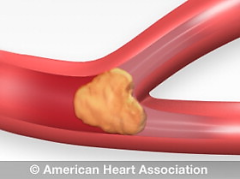Stroke: Developing a Whole New Field of Neurological Therapy
Dr. Jeff Saver Pivotal in Transforming Stroke Treatment
Fall 2018

In 1992, stroke patients entered the hospital and were often shunted aside. Though stroke was the third leading cause of death and the leading cause of adult disability, neurologists had no specific therapies for stroke. In 2018, stroke patients are now rapidly moved through a high intensity pipeline from the field, through the ambulance, to quick intervention in coordinated stroke units. Stroke is now the 5th leading cause of death, with half as many patients dying now as in 1992, due to breakthrough therapies in drugs to dissolve blood clots and in devices to retrieve clots from brain blood vessels. Dr. Jeff Saver, UCLA Neurologist and Director of the UCLA Comprehensive Stroke Center, has been at the center of these innovations in stroke care.
UCLA invented one of the first devices to selectively remove a clot from inside a brain blood vessel, administered with a catheter threaded into the artery. Dr. Saver led the first clinical trial of this device, with modest results from this early technology. Physicians at the time felt that removing clots from vessels that are 1.5 to 3 millimeters in diameter could not be done (this is the width of 4 periods at the end of this sentence).... Even if it could be done, it was thought that it could not be done in time to save brain cells from the obstruction of blood that occurs in stroke. Dr. Saver then led the testing of an advanced clot-retriever device and the development of the rapid medical system necessary to get this to patients, in a landmark clinical trial (termed “SWIFT-PRIME”). This was one of four trials in 2016 to show that clot retrieval had dramatic effects in stroke, with an improvement from the first attempts of one out of four successes to eight to nine out of 10 successful efforts at restoration of blood flow to the brain. Medical devices to remove brain blood clots and the development of the advanced systems to speed these devices to patients involved creation of whole new systems of medical care, crossing borders to bring together EMS personnel in ambulances, nurses, neurologists, emergency physicians, neurosurgeons, radiologists and ICU teams. As a key innovator in this effort, Dr. Saver has a remarkable academic output: five first or senior author primary research publications in the New England Journal of Medicine alone since 2015 (few researchers publish even one article in this journal in the span of a career). From 1992, the start of Dr. Saver’s neurology career, to 2018, stroke became a treatable disease and stroke patients were not shunted aside but literally whisked to therapy.
This progress was disruptive to entrenched systems of medical care. Conflict occurred as physicians that were not used to responding so rapidly pushed back. Dr. Saver notes the results of an Institute of Medicine study that estimates that the average time for a new therapy from evidence to practice is 17 years. Fortunately, stroke therapy has advanced with remarkable speed, led by efforts from Dr. Saver and others to develop a new stroke network
In this network, more widespread Primary Stroke Centers were set up to rapidly treat and move patients for the most advanced care to Comprehensive Stroke Centers.
What is the future in stroke care? Dr. Saver sees brain protection or “neuroprotective” therapies administered in the ambulance to prevent brain cell death as patients are rushed to Stroke Centers. Specialized ambulances with CT scanners (with UCLA leading in this area in the Henry and Arlene Gluck Mobile Stroke Unit) will allow immediate diagnosis and treatment with a clot-busting agent. New devices with advanced shapes and mechanical energies will target smaller and more hard-to-reach clots, and new therapies will treat the injured brain to promote recovery. These treatments will cross borders of engineering, rehabilitation medicine and brain imaging systems.